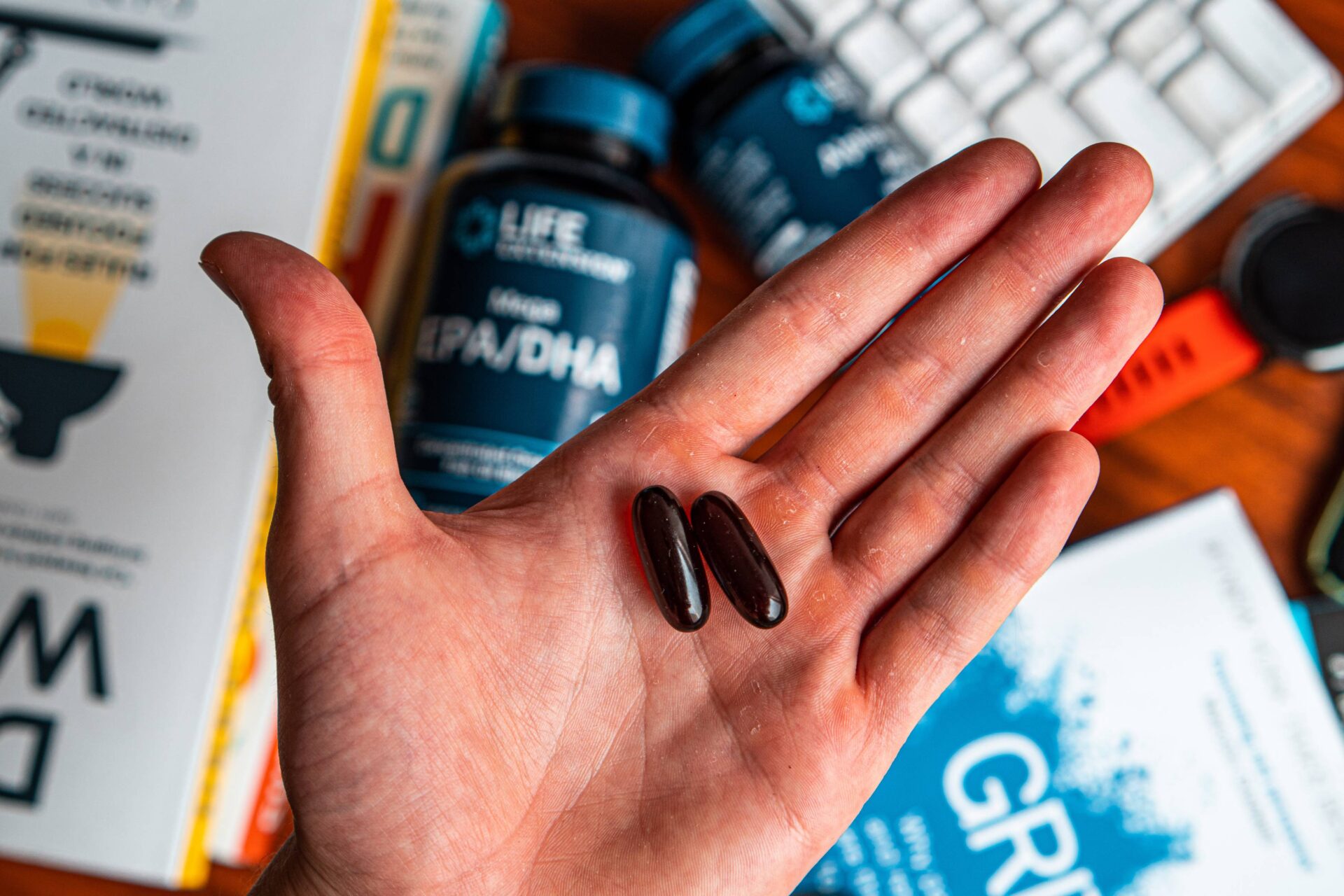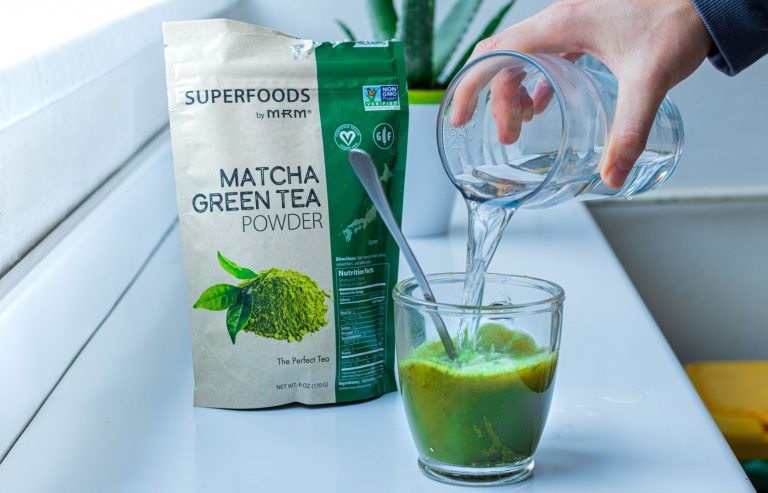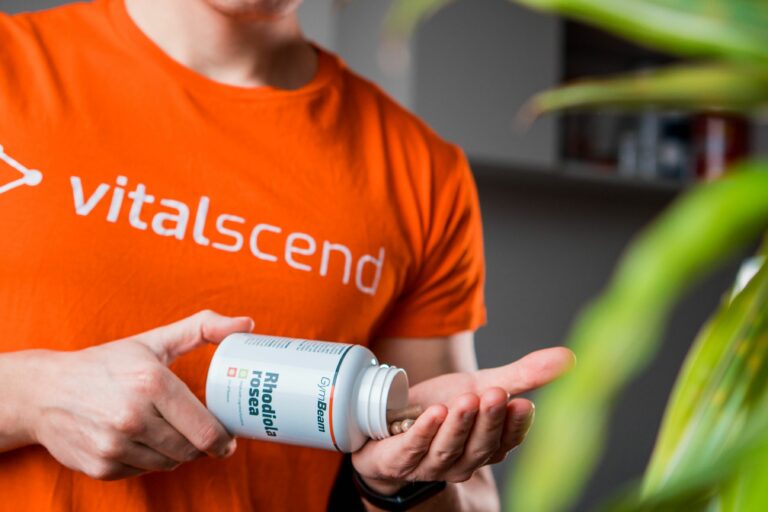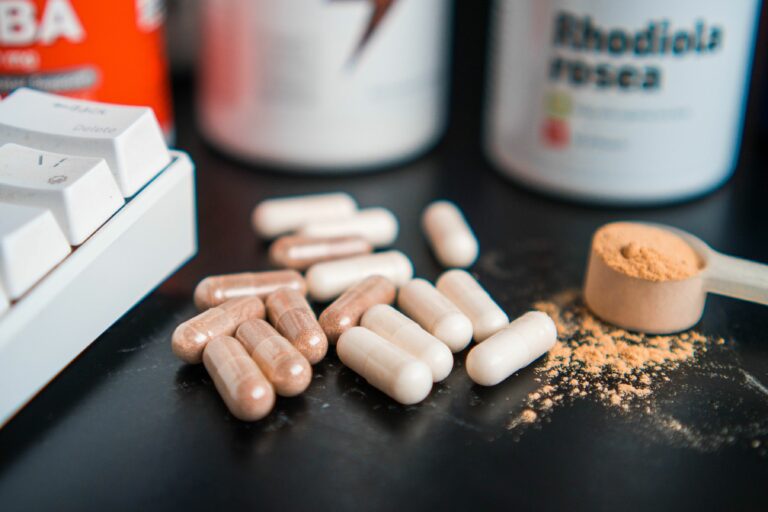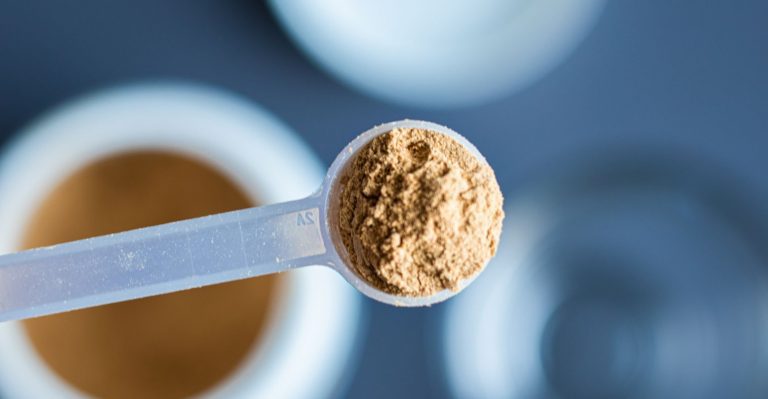4 Nootropics to Boost Mental Energy
Our fast-paced dynamic lifestyle requires a lot of brain activity. Memorizing, sharp thinking, decision-making, and creativity. The cognitive engines are constantly working, driving neuroinflammation up. Just like a muscle, the brain needs some time to repair.
How to make these cognitive engines run smoother? How to make our brain more efficient at producing energy, so we can do more in less time? This is the topic many brainiacs want an answer on.
In this article, we’ll dive into the brain’s energy metabolism, the fuels it runs on, and how to make it more effective. By doing so, we can hopefully fight fatigue and experience a sustained increase in brainergy.
We’ll also discover the top 4 brain nutrients one can supplement to potentially improve cognitive function, assist in brain development, and support neuroprotection. Get yourself a cup of coffee and let’s dive in.
How is Energy Created?
The Brain ATP Cycle
To fight fatigue, we want to increase energy production first. Why? Because fatigue is literally a lack of energy. Humans use ATP or adenosine triphosphate as the main fuel, the so-called fuel of life. This powers our bodies, supporting all necessary physiological functions for sustenance.
Our metabolism is constantly working to break down food [calories] to generate more ATP. It does this with the help of oxygen and water, using nutrients like glucose and lipids. During the process of cellular respiration, beta-oxidation, and ketosis we generate energy in our power cells [mitochondria]. (1) The inability to create enough energy causes deficits which are linked with disease and aging.
ATP is an adenosine molecule with three phosphate bonds. The breakage of these bonds is what “releases” energy in the body. By breaking one bond ATP becomes ADP (adenosine diphosphate), and by breaking two bonds AMP (adenosine monophosphate). The body constantly recycles adenosine, especially during sleep, hence why we wake up replenished.
Having more phosphate bonds means greater energy density. So comparing ATP to AMP, we can instantly see there’s richer energy in ATP, due to the higher number of bonds. (2)
Energy production efficiency is tightly related to anti-aging and good health. This is why numerous longevity experts target the optimization of mitochondria function. (3) The mitochondria help produce energy using oxygen [aerobic] or not [anaerobic].
Fun Fact
The mitochondria generate 32 ATP per glucose molecule. The cells in the human body depend upon the hydrolysis of approximately 100-150 molecules. (1)
Why Does Mental Fatigue Occur?
More ATP means more energy. But more adenosine doesn’t. Let us explain.
Adenosine can be both excitatory and inhibitory neurotransmitters, produced inside the body, namely the heart and the brain. It’s widely distributed in the CNS. (4)
As we produce energy daily, during metabolism, thinking, movement, etc., we are using ATP. Put simply, we’re breaking down phosphate bonds to release [use] more energy.
As we’re using more and more ATP, more adenosine is left in the system making us feel tired. This is very logical when we think about how tiredness increases with activity. Be it learning, exercising, overthinking, or creating, leaves us dry and fatigued.
As adenosine accumulates, it binds to its AR receptors in the brain, signaling fatigue. The more we use our brain, the greater the adenosine build-up. (5) (4)

Intense cognitive processes will indeed lead to mental fatigue. Execution, thinking, memorization, and processing are all complex tasks that release toxins and adenosine, driving neuroinflammation up. (6) (7) This leads to reduced cognitive capacity, or what we like to call mental fatigue.
Stressed, hyperactive, and inflamed brains also lead to an imbalance of numerous hormones like dopamine, cortisol, and serotonin. This leaves the brainiac feeling the effects of mental fatigue even more.
During sleep, we replenish ATP stores and clean up these ATP-related pathways. Anabolic reactions take place, helping to regenerate [and detoxify] from the daily stressors. Sleep reduces energy demands on the brain, and helps restore ATP levels. (8) (9)
Summary
Fatigue occurs due to the accumulation of adenosine, the by-product of energy [ATP] metabolism. The longer we’re awake, and more that we’ve worked, the greater the fatigue.
Caffeine and Adenosine Receptors
So, how does caffeine work its magic on our brain? Caffeine is a natural stimulant that helps to keep us awake and alert by blocking the action of adenosine
Caffeine has a similar structure to adenosine. Because of this, it binds to the adenosine receptor [AR] which prevents the accumulation of adenosine. Adenosine is then left floating in space, unable to bind to its receptor to make us tired.
So adenosine antagonists like caffeine can prevent sleepiness, reduce fatigue, and stimulate wakefulness. (10) (11)
Of course, this can be detrimental at night time because it interferes with sleep. If deep sleep can’t exert its reparative functions, we end up in a loop of caffeine-induced fatigue. Adenosine is never fully recycled, and we need a cup of coffee acting as an essential pick-me-up.
Fun Fact
Headaches and fatigue as side effects of caffeine come due to a surge of free [unreleased] adenosine. Adenosine binds to its AR receptors in excess during the cessation of caffeine, making us feel tired and sleepy.
What fuels the brain?
The brain is a very complex organ primarily built on fats [60%]. To run optimally it needs a constant supply of energy. But what fuels the brain exactly?
The brain uses ATP as the primary source of energy. Regardless of the nutrient used to make energy, ATP is our end goal to power up the brain.
The brain likes glucose, a lot. It primarily oxidizes glucose to create energy to power its processes. This is a fast and effective way of getting quick ATP, essential for the brain. (12)
Other alternative sources [or essential components] are oxygen, pyruvate, creatine, l-carnitine, and of course, fats. Being a very metabolically active organ, the brain needs a constant supply of energy and oxygen to run effectively. (13)
So, your smart brain uses:
- Glucose: 120 g of glucose is oxidized daily by the brain; the preferred fuel
- Oxygen: an absolute essential in generating ATP via cellular respiration
- Pyruvate: the end-product of glycolysis which is converted into acetyl CoA in the Krebs cycle
- Creatine: essential for fast recycling of ATP, as it donates phosphate [energy reservoir]
- Ketones: the alternative source of fuel in times of glucose deprivation. slower, but more efficient [more ATP per fat molecule]
Note
Write a short description, that will describe the title or something informational and useful. Ma quande lingues coalesce, li grammatica del resultant lingue es plu simplic e regulari quam ti del coalescent lingues
Boost mental energy – 4 Brain Nutrients
Looking to boost your mental energy and get your brain firing on all cylinders? Well, before diving into research, let’s note one thing. There’s no more important essential for brain health than sleep. Optimizing your sleep should be the first resort you turn to, to protect the brain and enhance cognition.
Aside from that, our brain needs quality nutrients, oxygen, and enough water to function optimally. That being said, what are some key nutrients that can help build better brain hardware?
B Vitamins
B vitamins are essential nutrients for brain development and cognitive function. Besides being key for myelinization, B vitamins help produce energy in the brain. (14) They’re also involved in the synthesis of neurotransmitters, promoting cognition.
Research has highlighted, and predominantly focused on B vitamins like Folate, B6, and B12 which reduce cysteine levels. This is important as the toxin is detrimental to cognitive function, facilitating neurodegeneration. (15) (16) (17)
However, numerous other B vitamins are important in brain function. Niacin or vitamin B3 acts as a coenzyme in the NAD/NADP pathway which is crucial for energy production. It supports neural health and delays neurodegeneration. (18)
Vitamin B-12 is essential for brain development, deemed to be crucial in young children. It supports myelination and development of the nervous system. (19)
B-vitamin deficiency is linked to cognitive dysfunction, low memory, and poor brain health. (20). So, in a deficient population supplementing with B vitamins may slow down cognitive decline. (21)
Summary
B vitamins are essential nutrients that support cognitive function, neural development, and brain health.
CoQ10
The brain is especially susceptible to oxidative damage. High executive functions without sufficient recovery can lead to burnout, driving neuroinflammation. This is where the importance of antioxidants shines through.
CoQ10 plays a role in energy production as it helps transport electrons, supporting ATP production in the brain. (22) This gives mental energy a boost and supports cognition.
As an antioxidant, it tackles an important element of brain health – mitochondria function. By improving mitochondria function and reducing oxidative stress, coenzyme Q10 can promote cognitive health. (23)
Additionally, people with cognitive impairment, like Parkinson’s patients show depleted levels of CoQ10. This might also be associated with an increased risk of developing other neurodegenerative diseases, namely Alzheimer’s. (23)
Summary
Coenzyme Q10 plays an important role in energy metabolism in the brain. It’s an antioxidant that supports mitochondria function, an important factor for brain health.
Choline
Choline is an essential nutrient involved in the synthesis of acetylcholine. ACH is crucial for cognition, allowing cognitive processes like thinking, learning, and memorizing to run smoothly.
Besides, it’s a key nutrient for cognitive development, brain metabolism, and liver function. Choline is just like B vitamins, known to assist in the regulation of homocysteine levels. (24)
Choline is crucial for cholinergic neurotransmission – or simply, transferring neural signals in the brain. It’s important for certain neurotransmitters, hence why its dysregulation is linked to cognitive disorders. (25)
As a supporter of the cholinergic system, acetylcholine can improve spatial or working memory as it supports neural signaling. (26)
Research in ~2400 elderly patients shows a link between choline intake and better cognitive performance. (27)
The top three supplements shown to increase the levels of acetylcholine include
- Alpha-GPC (phospholipid and choline)
- CDP or Citicoline (cytidine and choline)
- Bacopa Monnieri (blocks the enzyme that breaks down acetylcholine)
Summary
Acetylcholine is the key cholinergic neurotransmitter. Choline is essential for its synthesis, thus supporting various cognitive functions like learning, memory, and attention.
Creatine
Creatine is one of the most well-researched supplements on the market, proven to work for enhancing athletic performance. Recent trends show its ability to impact cognitive function positively.
This is logical, as creatine phosphate helps recycle ATP faster in the brain. It’s the fast fuel that gives quick energy, thus supporting brain function. It can have potent nootropic effects, especially in a creatine-deficient population.
Creatine is important for neural development and facilitates mood and cognitive function, especially during fatigue [depleted energy stores]. Supplementing with creatine phosphate affects creatine levels in the brain, which helps maintain higher levels of ATP in the brain. (28) (29)
Studies even show the potential of oral creatine supplementation to improve short-term memory and logical reasoning. Especially in times of stress when energy [and creatine] is lower, creatine can help one take the leap.(30) (31)
Summary
Creatine is an important nutrient that helps increase brain energy. It supports brain metabolism, providing a fast restoration of ATP levels. It’s important in brain development, cognitive function, and short-term memory.
Conclusion
- Mental fatigue is a lack of energy in the brain. It’s improved by taking care of factors like sleep, quality nutrients, water, and oxygen. The main energy source for the brain is glucose, but during low glucose levels, the brain shifts to using ketones for energy.
- Energy creation in the brain accumulates adenosine, a neurotransmitter that signals fatigue. Sleep helps us restore levels of adenosine. Caffeine, by blocking adenosine receptors [AR] increases alertness.
- Increased cognitive demand on the brain without sufficient recovery drives inflammation up. Optimizing the mitochondria function to produce more energy and fight oxidative stress is the key target in improving cognition
- Four great nutrients that support brain health are creatine [fast-energy, ATP recycle], B-vitamins [brain development & energy], CoQ10 [potent brain antioxidant], and Choline [acetylcholine precursor, facilitates cognition].

